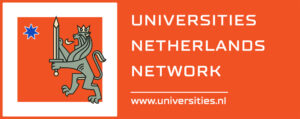Introduction
Nestled in the heart of the Caribbean on the island of Curaçao, the University of Curaçao Dr. Moises Frumencio da Costa Gomez (UoC) stands as the national university of this Dutch Caribbean territory. Renamed in 2011 to honor Dr. Moises Frumencio da Costa Gomez, the first Prime Minister of the Netherlands Antilles and a key figure in the region’s push for autonomy and universal suffrage, the UoC has evolved into a vital institution for academic and professional development. With a focus on applied research, multicultural education, and community engagement, the university plays a crucial role in fostering innovation and preserving local heritage while preparing students for global challenges.
History
The roots of the UoC trace back to 1970, when it began as the Law College of the Netherlands Antilles, initially offering preparation for the LL.B. exam in Antillean Law. In 1974, it expanded to become the College of the Netherlands Antilles, incorporating a degree program in Business Administration. By 1977, the institution further grew with the addition of Public Administration studies, allowing students to earn bachelor’s degrees in that field.
The university was officially established on January 12, 1979, through a national decree, integrating the Antillean College of Technology (founded in 1972) as its Faculty of Engineering. At this time, it was known as the University of the Netherlands Antilles, serving the broader archipelago. Following the dissolution of the Netherlands Antilles in 2010, the institution was renamed in 2011 to the University of Curaçao Dr. Moises Frumencio da Costa Gomez, reflecting Curaçao’s new status as an autonomous country within the Kingdom of the Netherlands. This renaming paid tribute to Dr. da Costa Gomez’s legacy, including his doctoral thesis advocating for self-government, which inspired political reforms in the region.
Since its inception, the UoC has maintained strong ties to Dutch educational standards, with programs accredited by the Nederlands-Vlaamse Accreditatieorganisatie (NVAO), ensuring equivalence to universities in the Netherlands. It has also developed international partnerships, including with universities in the Caribbean, the United States, and Europe, enhancing its global reach.
Key Facts
The UoC is a public, state-funded university located in Willemstad, Curaçao, at coordinates 12°09′25″N 68°57′40″W. It serves a diverse student body in a multilingual environment, with instruction often in Dutch, English, and Papiamento. Key statistics include:
– Enrollment: Approximately 1,500 undergraduate students and 70 postgraduate students.
– Annual Graduates: Around 300 students per year.
– Staff: 40 academic staff and 60 administrative staff.
– Endowment: ANG 20 million (approximately USD 11 million).
– Leadership: Rector Stella van Rijn (as of recent records).
– Accreditation: All programs are NVAO-accredited, with a focus on practical, applied education.
The university operates as a small-scale institution, emphasizing personal student coaching and a multicultural atmosphere that welcomes both local and international students. Since 2010, it has hosted the UNESCO Caribbean Small Island Developing State Good Governance Chair, underscoring its regional influence.
Academic Programs and Faculties
The UoC offers a wide array of bachelor’s and master’s programs across five faculties, blending academic rigor with practical, real-world applications. Programs are designed to meet the needs of Curaçao’s economy, incorporating applied research and partnerships with institutions like Hofstra University and Erasmus University Rotterdam. Below is a summary of the faculties and their key programs:
Additional accredited programs include specialized offerings like hbo-master in Papiamentu, English, Dutch, and Spanish, as well as teacher training in various languages. The university’s emphasis on bilingual and trilingual programs reflects Curaçao’s linguistic diversity and prepares graduates for regional and international careers.
Importance
The UoC is indispensable to Curaçao’s social and economic fabric, serving as the island’s primary hub for higher education and knowledge dissemination. By focusing on applied research tailored to local contexts, it drives innovation in fields like technology, governance, and culture, contributing to sustainable development in small island states. As a guardian of Curaçao’s heritage, it preserves and promotes local languages and traditions while building a skilled workforce that integrates seamlessly into the job market.
Regionally, the UoC collaborates with institutions across the Kingdom of the Netherlands and the Caribbean, enhancing educational mobility and addressing shared challenges like climate resilience and economic diversification. Its alumni, including notable figures like former Aruban Prime Minister Mike Eman and writer Diana Lebacs, exemplify its impact on leadership and culture. In an era of globalization, the UoC’s commitment to “building local strength for a global future” positions it as a beacon for small nations striving for self-reliance and excellence.
From its humble beginnings as a law college to its current status as a dynamic, accredited university, the University of Curaçao Dr. Moises da Costa Gomez embodies resilience and progress. By offering diverse programs, fostering research, and nurturing cultural identity, it not only educates the next generation but also propels Curaçao toward a brighter, more innovative future. As the island navigates modern challenges, the UoC remains an enduring symbol of intellectual empowerment and community upliftment.
